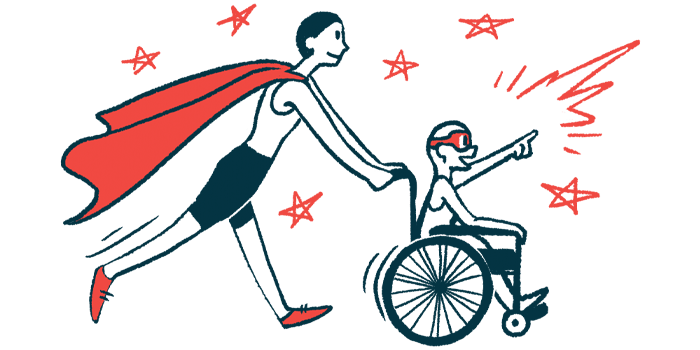Celebrating ‘Fabry Heroes’ during Awareness Month this April
Written by |

For this year’s Fabry Awareness Month — observed every April to bring attention to Fabry disease — the spotlight is on the everyday heroes who live with the rare genetic lysosomal storage disorder.
Activities during the month are aimed at heightening awareness among the general public, in addition to lawmakers, public authorities, researchers, industry representatives, and health professionals.
While Fabry occurs in both males and females, the disease generally affects men and boys more severely. The classic, more severe type of Fabry is thought to affect 1 in 22,000 to 40,000 males. The later-onset, atypical form of the disorder affects about 1 in 1,000 to 3,000 males and 1 in 6,000 to 40,000 females.
Primarily affecting the heart, kidneys, and nervous system, Fabry is caused by the toxic accumulation of fatty molecules in small blood vessels and most body tissues. Disease symptoms can include severe pain and burning, skin abnormalities, kidney impairment, heart disease, cerebrovascular complications, and eye, respiratory, hearing, and gastrointestinal problems.
To celebrate patients and call attention to their journey, the Fabry International Network (FIN) — which supports 60 patient organizations in 57 countries — is presenting a “Fabry Heroes” campaign.
“By giving people with Fabry a superhero mask, we applaud their strength, courage, and never-give-up attitude,” the organization states on an awareness month webpage. “Join FIN in celebrating the #FabryHeroes and share their brave stories. Let’s spread awareness and show our appreciation together!”
Supporters are asked to engage with FIN on social media during the month and share the group’s posts, using the hashtag #FabryHeroesMonth.
“Simply liking, sharing, and commenting on our posts about Fabry Heroes can make a big difference in spreading awareness and educating others,” the organization states.
Awareness month participants also are encouraged to share their own messages of support to spark conversation about the disease and the annual event.
By giving people with Fabry a superhero mask, we applaud their strength, courage, and never-give-up attitude.
FIN also is offering prepared social media posts, each including a patient photo, about Fabry Heroes that participants can download and use on their platforms. One such post features 24-year-old Amira, of Morocco, who wrote: “Fabry disease has an impact on my life, in ways I can not control. Even so, I take my health into my own hands. There are so many things I can do to enhance my qualify of life.”
There’s also patient Ji-woo, 19, of South Korea, who wrote: “I used to be focused on everything I can’t do because of Fabry. Conversations with other people with Fabry changed that. By setting my own limits and believing in myself I can achieve so much more.”
Mary, 55, from the U.S., says she “very grateful” for her Fabry family.
“Meeting other people with Fabry gives me energy. We automatically have a bond, because we have this rare disease in common,” she wrote.
Throughout April, FIN is featuring Fabry “heroes” on Facebook. The National Fabry Disease Foundation is tweeting daily about the disorder and sharing community information.





